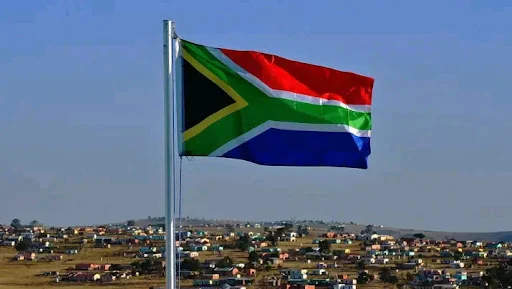Examining Land Ownership Disparities and Poverty Statistics in the Nation....
In recent times, the ongoing debate surrounding economic transformation has ignited passionate discussions among various stakeholders in South Africa. Johan Rupert, one of the prominent figures in the country, has made headlines with his controversial statement equating radical economic transformation to theft. This narrative has found support among some influential individuals, including Black Colonial Administrators/Clerks and Policy Askaris Incorporated (referred to derogatorily as "house niggers/baas boys and girls"). Today, we delve into the unresolved issue of land ownership, profound poverty statistics, and the urgent need for change in South Africa.
Land Ownership Disparities:
A striking statistic on land ownership in South Africa has sparked concern and shed light on the inequality prevalent within the nation. According to available data, it is estimated that whites own a significant 72% of the country's land, while black Africans, the majority population, own only a mere 4%. Coloureds, Indians, and other ethnic groups fare only slightly better, with 14% and 5% of the land respectively. Such land disparities have perpetuated a sense of frustration and exclusion among the black African population.
Unveiling Poverty Statistics:
The poverty statistics within the South African context further highlight the extent of economic inequities. Reports indicate that poverty manifests itself disproportionately among different racial groups. While whites, who make up a mere 1% of the country's population, experience a poverty rate of just 1%, the situation is vastly different for other groups. Indians face a poverty rate of 6%, while coloureds account for a staggering 41%. The most alarming figure lies with black Africans, who make up the majority at 64%.
The Struggle for Equal Access to Healthcare:
To exacerbate the issue, disparities in access to healthcare have also emerged as a significant concern. Statistics show that the majority of white and Indian populations have relatively high levels of access to medical aid, with rates reaching 72.9% and 59%, respectively. On the other hand, coloureds face significant limitations, with only 15% being covered by medical aid schemes. Black Africans, who face the brunt of poverty, experience the most limited access to medical aid, with a mere 9%.
Addressing the Inequality Gap:
It is clear that South Africa remains one of the most unequal societies in the world, with black Africans disproportionately affected by landlessness, homelessness, and severe poverty. The call for radical economic transformation seeks to address these deeply entrenched disparities. Proponents argue that reshaping land ownership, wealth distribution, and opportunities for marginalized groups will bring about a more just and inclusive society.
Conclusion.
The narrative surrounding economic transformation in South Africa has garnered attention due to its controversial nature. Acknowledging the persisting imbalances in land ownership and the alarming poverty statistics among different racial groups reveals a pressing need for change. It is imperative to collectively work towards a more equal society, ensuring access to land, resources, and opportunities for all South Africans. Only through addressing these disparities can the nation move closer to achieving true liberation and social justice.
Tags
Africa

